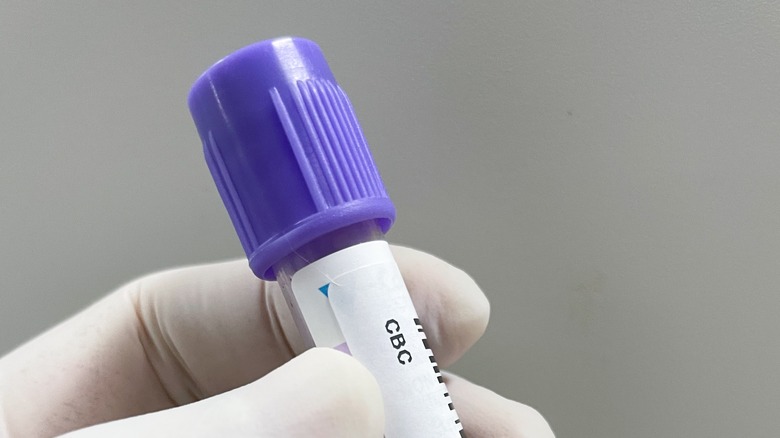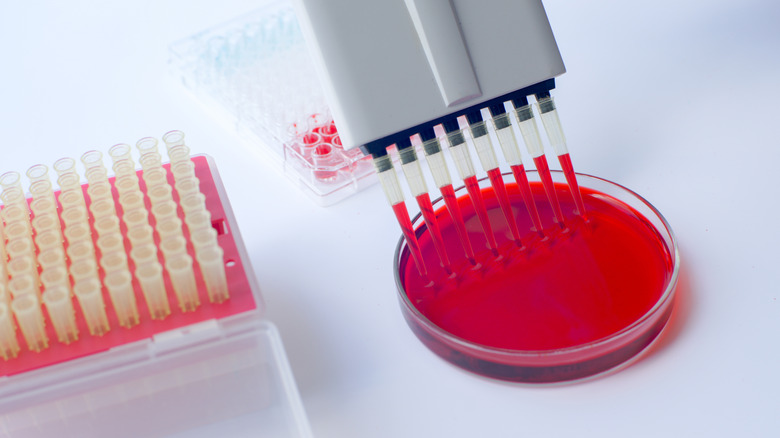What Does It Really Mean When Your WBC Is Low?
In addition to the red blood cells (erythrocytes), which transport oxygen from the lungs to the rest of the body, our body also has white blood cells (WBC), which have the important task of defending the body against infectious diseases (via University of Rochester Medical Center).
White blood cells, also known as leukocytes, are produced in the bone marrow (via WebMD). Compared to the red blood cells, which owe their color to the red blood pigment hemoglobin, white blood cells contain no red blood pigment and, therefore, appear white (per MSD Manuals). Healthline states that the five types of white blood cells have various roles when protecting the body against infection. They include eosinophils, lymphocytes, monocytes, neutrophils, and basophils.
With the help of a small blood count, you can determine the number of white blood cells in the blood and draw conclusions about your health based on changes in this laboratory value. According to Medical News Today, the normal value for adults is between 4,500 and 11,000 leukocytes per microliter of blood.
Causes of a low white blood cell count
According to WebMD. Too low a value of white blood cells is often termed leukopenia. The source also mentions that the causes vary and can be due to bone marrow and spleen problems, which can drop the blood count. Some medications and antibiotics, along with medical treatments like chemotherapy and radiation therapy, in particular, can also cause a low white blood cell count.
Healthline states that too low a value of white blood cells can trigger typical infectious diseases such as HIV or AIDS. So, for those affected, it's particularly important to watch out for further infections. Cleveland Clinic also notes that some autoimmune diseases, such as lupus can lead to low white blood cell counts. This is because autoimmune diseases attack the immune system and kill white blood cells, per Medline Plus. Other likely causes include vitamin deficiencies, rheumatoid arthritis, and liver damage, per Cleveland Clinic.
Treatment for a low white blood cell count
If you think you have an infection, it's best to visit your doctor for a proper diagnosis and information about treatment options. Since the causes of low white blood cells vary, identifying them is important before starting any treatment. Your doctor might check your white blood cell values through a test known as a complete blood count (via Cleveland Clinic). Depending on the cause, you might have to take dietary supplements to correct the deficit.
In the meantime, Cleveland Clinic advises that thorough hand washing and wearing a face mask might be helpful to minimize the chances of infection. They also advise being careful around pets and staying away from those who have an infection.
To further protect your immune, a healthy diet is also particularly important, per Healthline. The site advises against eating raw or undercooked meat, eggs, and unpasteurized dairy products. Look for fruits and vegetables that are high in vitamins, minerals, and antioxidants, which strengthen your chances of fighting infections, according to WebMD. In addition, checking the temperature of food and storing food correctly will further help to fight infections, per Healthline.



